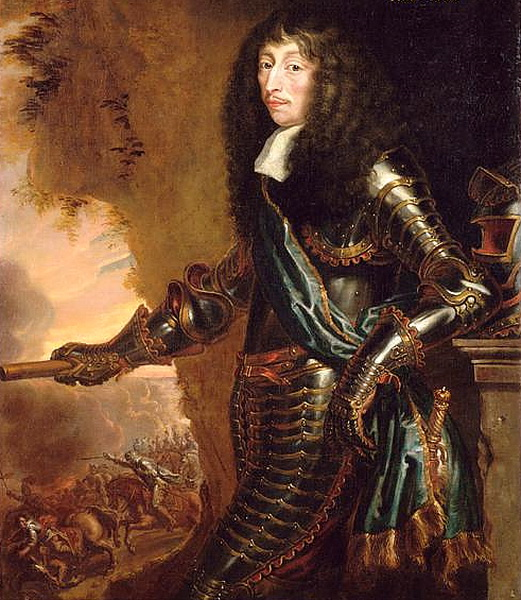
Louis, Grand Condé
Episode of the Fronde at the Faubourg Saint-Antoine by the Walls of the Bastille.
Series of unsuccessful attempts by French judges, nobles, provincial parliaments, and workers to limit royal power. The several insurrectionist parties were collectively called the Fronde, from a French word meaning “slingshot,” a common weapon of the time among poor people. When Louis XIV ascended the throne in 1643 at the age of five, his mother, Anne of Austria, ruled nominally as regent, but power actually rested with her prime minister, Jules Cardinal Mazarin, an Italian. Anne and Mazarin withheld judges’ salaries and imposed oppressive taxes on the working poor in order to finance French involvement in the Thirty Years’ War in Germany. The Parlement de Paris rejected these decrees in July 1648, ruling that they were illegal during a regency, especially in that the regent and her minister were both foreigners. Anne and Mazarin retaliated by arbitrarily arresting Parisian judges, including the popular Pierre Broussel, on 26 August, and placing Paris under martial law. The Parisian public openly supported its parliament and erected barricades on 27 August. Anne surrounded Paris with troops, intending to starve the dissidents into submission.
Revolt did not abate when the Peace of Westphalia ended the Thirty Years’ War in October. The mob gradually gained the upper hand in Paris, kept Anne and Louis under virtual house arrest in the Louvre, and frightened her into fleeing to Saint-Germain-en-Laye on 5 January 1649. News of the execution of English king Charles I hardened her resolve to centralize power and establish her son’s invulnerability to public discontent. She ordered Louis II de Bourbon, Duke of Enghien, known as Condé the Great, to invade Paris and put down the revolt by any means necessary. He obeyed with brutal efficiency and was entirely successful. The pro-royalist Peace of Reuil was concluded on 1 April.
Mazarin grew fearful of Condé’s ambition and had him arrested on 18 January 1650. This blunder only galvanized anti-Mazarin sentiment among the nobles, who were already jealously trying to protect their traditional feudal privileges from central authority. Sparked by Condé’s sister, the duchess of Longueville, the nobles rebelled, first in Normandy and soon all over France. Chaotic civil war raged throughout 1650. As the advantage seesawed, Mazarin released Condé in February 1651 and went into brief exile.
Eager for revenge, Condé played on the general hatred of Mazarin among all classes. With some help from Habsburg Spain and Cromwellian England, by September he had placed himself at the head of the combined armies of the Fronde. The duke of Luxembourg was among his lieutenants. Condé captured Bordeaux, won the allegiance of Orleans, lost to the Viscount of Turenne’s royalist forces on 6-7 April 1652 at Bléneau, then marched on Paris. On 2 July he and the duchess of Montpensier took Paris by defeating Turenne at the Bastille. Mazarin went into exile again. Anne and Louis returned safely to Paris in October after Condé’s arrogance had alienated the Parisians. Condé and Turenne faced each other on many battlefields before Turenne finally wore Condé down late in 1652. Condé defected to Spain. Mazarin returned on 3 February 1653 as the insurrection fizzled, though various protests continued until his death in 1661.
The defeat of the Fronde paved the way for Louis XIV and Louis XV to rule as absolute monarchs. The dictatorial power of French kings was not again seriously challenged until the excesses of Louis XVI and Marie Antoinette incited the French Revolution.
References and further reading: Bercé, Yves Marie. The Birth of Absolutism: A History of France, 1598-1661. New York: St. Martin’s Press, 1996. Knachel, Philip A. England and the Fronde: The Impact of the English Civil War and Revolution on France. Ithaca, NY: Cornell University Press, 1967. Moote, Alanson Lloyd. The Revolt of the Judges: The Parlement of Paris and the Fronde, 1643-1652. Princeton, NJ: Princeton University Press, 1972. Ranum, Orest A. The Fronde: A French Revolution, 1648-1652. New York: W. W. Norton, 1993. Treasure, Geoffrey Russell Richards. Mazarin: The Crisis of Absolutism in France. London: Routledge, 1995.